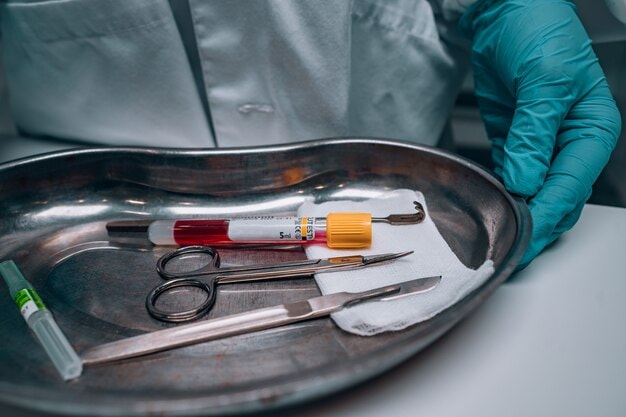
What is Erectile Dysfunction ?
Time to read 13 min
Time to read 13 min
Erectile dysfunction (impotence) occurs when a man cannot achieve an erection or keep an erection firm enough for sexual intercourse. Occasional trouble with erectile dysfunction isn’t a cause for concern, but if the problem is ongoing you should seek treatment.
Stress and mental health problems also can cause or worsen erectile dysfunction. Often, the condition results from a combination of physical and psychological issues.
Factors that can contribute to erectile dysfunction include:
Medical conditions, particularly diabetes or heart problems
Tobacco use, which restricts blood flow to veins and arteries
Being overweight
Certain medical treatments, such as prostate surgery or radiation treatment for cancer
Damage to the nerves that control erections
Medications, including antidepressants, antihistamines, and medications to treat high blood pressure, pain or prostate cancer
Drug and alcohol use, especially long-term use or heavy drinking
Prolonged bicycling, which may compress nerves and affect blood flow to the penis, causing temporary erectile dysfunction.
A physical exam and a medical history often are all that’s needed to make a diagnosis. If your doctor suspects an underlying problem, you may need further tests. A variety of treatment options exist. They include:
Some oral medications enhance the effects of nitric oxide, a natural chemical your body produces that relaxes muscles in the penis. This increases blood flow and allows you to get an erection in response to sexual stimulation.
Before taking any medication for erectile dysfunction (including supplements or herbal remedies), get your doctor’s OK. The drugs may be dangerous if taken with certain medications or if you have heart disease or uncontrolled high blood pressure.
If medications don’t work or aren’t an option, other choices include:
A tube is placed over your penis, and a pump sucks out the air inside the tube. This creates a vacuum that pulls blood into your penis, creating an erection. To keep the penis firm, you slip a tension ring around its base.

It involves surgically placing inflatable or semirigid rods into the two sides of the penis. This treatment usually isn’t recommended until other methods have been tried.

In rare cases, leaking or obstructed blood vessels can cause erectile dysfunction and surgery is necessary to repair them.
Erectile dysfunction, commonly abbreviated as ED, has become one of the sexual health disorders among men today. But what is erectile dysfunction, really? Erectile dysfunction is defined as a condition wherein a man has not been able to achieve or maintain an erection firm enough for sexual activities.
The condition of erectile dysfunction is often associated with aging but may be triggered in any man of whatever background due to different underlying causes. To understand erectile dysfunction better, it's imperative to discuss causes, symptoms, treatment options, and the consequent effects on personal relationships, in particular with your partner.

Erectile dysfunction is defined as the consistent inability to get an erection or maintain an erection firm enough for satisfactory sexual performance. An erection occurs when there is increased blood flow to the penis.
Sexually stimulating a man sends signals from the brain and nervous system, which brings blood vessels in the penis to dilate thereby allowing more blood into the penis, which causes an erection.
With this dysfunction, all this is disrupted, usually by some underlying health complication or psychological factors.
Beside the physical causes, psychological and lifestyle-related factors are responsible for erectile dysfunction as well. The most common causes of ED are related with blood flow problems to the penis, hormonal imbalance, or damage to the nerves of the penis.
For example, diabetes and hypertension can weaken blood vessels and nerves of the penis and lead to these problems in its blood flow and erection.

The leading cause of erectile dysfunction is a diminution in the flow of blood to the penis. This may be caused by a variety of cardiovascular diseases, including hypertension, heart disease, and atherosclerosis. Such diseases may interfere with blood flow towards the penis, so the man cannot get an erection.
For men who have high blood pressure, the affected blood vessels are often damaged, thereby limiting the blood supply to the penis and further inhibiting the man's ability to achieve an erection.
Another cause of ED could be related to hormonal imbalances. For instance, low testosterone levels have been known to severely affect sexual health. They can lower the libido levels and make it hard to maintain an erection. Some medicines also induce ED as an effect.
For instance, drugs prescribed for high blood pressure, depression, and even anxiety can affect the blood flow to your penis or impact your nervous system in a way that their normal response to sex is altered.
In some cases, psychological factors such as stress, anxiety, and depression may cause erectile dysfunction.
Psychological status determines whether the man will be able to have and maintain an erection or not, especially if performance anxiety or relationship problems with your partner are involved.
Most cases of erectile dysfunction are a combination of both physical and psychological causes.

The primary symptom of erectile dysfunction is an inability to get an erection or hold an erection long enough for sexual satisfaction. This occurs only occasionally, but when this becomes frequent, it may indicate ED.
If you experience that you have trouble getting an erection regularly or you can't hold an erection long enough to complete sexual activity, then you may be experiencing erectile dysfunction.
Other signs and symptoms may include a lack of sexual desire or libido. The condition where you might find that you're no longer as interested in sexual activity as you previously was/are might be helpful in discussing with your doctor, considering this may be an indication of ED or related health disorders.
A person who suffers from ED might also be frustrated or even embarrassed by their condition, which may impact not only his relationship but also the quality of his life in general.
For a diagnosis of ED, a doctor will first perform a physical exam of the patient and review the medical history.
The doctor may also take blood tests for possible causes of ED, such as diabetes or low levels of testosterone.
Your doctor would question your lifestyle, sexual health, and all medicines you have been consuming to determine what could be causing ED to happen.
Mainstay treatment of ED varies with the cause. For instance, if uncontrolled hypertension is the cause, then managing hypertension has a good chance of improving the erectile dysfunction.
Medications most commonly used for ED are known as phosphodiesterase-5 (PDE5) inhibitors or drugs.
Sildenafil, also widely referred to as Viagra, tadalafil, and vardenafil, work by the facilitation of blood flow into the penis, making it possible for an erection to occur and be sustained.
Lifestyle changes are helpful for those who do not like pharmacological therapy.
In fact, most ED is affected by smoking cessation, reduction of alcohol consumption, regular exercise, and stress management.
Lifestyle improvement commonly results in better blood flow to the penis, and most men have found they are better able to attain and keep an erection.
The other treatment of ED is therapy or counseling, if the cause is psychological.
Therapy may help sort issues in related problems like anxiety and depression or other relationship between you and your partner causing ED. Online therapy or virtual sessions would help people who are not comfortable opening up about their symptoms.
Many will have different causes of ED. Some of them include age, obesity, diabetes, high cholesterol, high blood pressure, and even such habits as smoking. This mainly impacts the blood vessels, which in its turn lead to the reduction of blood flow into the penis.
In such conditions, a person faces ED. Maintaining a healthy lifestyle and balanced diet, and exercise as a regular habit, can help avert this medical condition.
Another prevention of ED is the successful management of chronic health conditions.
For example, if you have diabetes or hypertension, control is most important under the care of your physician; regular monitoring of blood pressure, sugar, and cholesterol levels helps maintain healthy blood flow to the penis and minimises the risks of ED.
Erectile dysfunction can have a devastating impact on relationships as the lack of erection-ability or inability to attain or keep an erection can naturally and unfortunately cause stress and tension in a relationship.
Inability to get an erection may often culminate into frustration, embarrassment, or guilt, which can strain communication and intimacy.
For a man in a long-term relationship, ED can keep him from having a healthy sexual relationship with his partner, affecting related desire, satisfaction, and emotional distance.
Open communication with your partner is imperative if you suffer from ED. The feelings and concerns that may be lying in the back of your mind can better be expressed among people for an understanding and support and reduce the emotional implication of erection dysfunction.
If the problem becomes too complicated to handle between the two, seeing a therapist or sex therapist as a couple can help improve communication and find ways to deal with the impact of ED on the relationship.
The occurrence of ED can be an indicator of other health conditions, such as cardiovascular disease. An erection is essentially the increased blood flow within your penis; thus, reduced blood flow to your penis could be an indication of poor blood flow elsewhere in your body.
That's one good reason why you should speak with your healthcare provider about ED-it could very well be a symptom of an even larger health issue.
ED also has a connection to mental health. The anger and embarrassment ED brings may result in low self-esteem and a feeling of inadequacy; hence, these feelings deter one's mental wellness.
Chronic stress, anxiety, and even depression may exacerbate ED further, thereby creating an upward spiral that is very difficult to break.
Counselling can address and treat one's ED while helping them overcome the other condition, which would mean an overall improvement in their wellness.
If you have symptoms of erectile dysfunction, seek medical attention. Many men are embarrassed to discuss ED, but doctors are trained to be understanding.
Early diagnosis and treatment can forestall further complications and improve quality of life.
If a patient is suspected of having ED, a doctor will send the patient to see several specialists to help diagnose a cause of ED.
This may include blood tests and urine tests in addition to imaging studies that evaluate blood flow to the penis checking for any vascular-related problems.
For some patients, an nocturnal penile tumescence test will be completed to check if erections occur during sleep as a way to separate physical from psychological causes of ED.
Finally, several over-the-counter supplements and herbal medications are also sold as treatments for ED.
It is not ensured that these are usually safe for consumption, considering the effect may vary.
This supplement must be discussed with your doctor prior to starting it to ensure that it will not interact with other therapies or medical conditions.
Lifestyle habits also have a role in preventing erectile dysfunction. Regular exercises, maintaining an ideal weight, not smoking, and drinking less alcohol are going to favorably support the cardiovascular system in general; good flow of blood to your penis is what helps create an erection, and these lifestyle changes support that mechanism.
Management of stress in men is also of importance in cases of ED. Stress will increase the levels of cortisol in the body, a hormone known to decrease libido and impair erections.
It would help in the management of ED if relaxation techniques like meditation and deep breathing exercises as well as mindfulness are incorporated.
There are still several new treatments being studied for erectile dysfunction. However, there is one new one that promises to change the game: stem cell therapy. Such a regenerative therapy could potentially repair or replace the damaged tissues which may help improve the blood flow in the penis.
Another area that research has also looked into includes shockwave therapy. It works by allowing shockwaves that send low-intensity sound waves in the penis to promote blood flow and potentially alter erectile function as well.
Another still-emerging field is gene therapy, which attempts to modify genes for enhanced erectile function. These are still in the experimental phases, but they promise hope for those who do not respond to conventional therapies.
Erectile dysfunction is such an ordinary but treatable condition with a big impact on the quality of life and self-esteem of a man, as well as his relationship with other people.
A man who knows what erectile dysfunction is and what causes it is much better equipped to take advantage of the therapies that are available to treat this condition.
Reduced blood flow to the penis or psychological factors may cause erectile dysfunction, or even such a combination of factors, and there are treatments that include medications and lifestyle changes.
If you are experiencing symptoms of ED, consult your doctor because sometimes symptoms of ED can indicate some more serious medical conditions .
Erectile dysfunction is a condition wherein one fails to get an erection or is incapable of maintaining the firmness required for sexual activity. The majority of erectile dysfunction cases are caused by blood flow disorders around the penis and disorders in the nervous system that hinder one's ability to keep an erection. You may thus consider visiting a doctor if you have erectile dysfunction and you are asking yourself what causes it.
Causes of erectile dysfunction Causes of erection dysfunction are multinimensional, and can be as physical, like a high blood pressure, diabetes or hormonal imbalances. On the other hand, psychological causes can be stress, anxiety or depression. Reduced blood flow to the penis is one of the most common causes of erectile dysfunction and often has a relation to cardiovascular problems. Your doctor will help pinpoint your condition and recommend proper treatment.
The first requirement to erect is an increase in the blood flow to your penis. An increase in blood flow causes an erection once you get sexually excited. Poor blood flow to the penis eliminates the chance of getting an erection. Several medical conditions can impede the proper flow of blood to your penis. These are such conditions like high blood pressure or atherosclerosis. A reduction in blood flow will cause ED. Improving blood flow to the penis may help in erectile dysfunction.
High blood pressure can damage the blood vessels, leading to a reduced supply of blood to the penis and potentially causing erectile dysfunction. Severe restriction of blood flow to your penis can make it difficult for you to achieve or maintain an erection. For individuals diagnosed with high blood pressure, lifestyle modification or medication may help alleviate ED. Discuss your risk of experiencing ED related to high blood pressure with your doctor.
Yes, lifestyle modifications can actually help with impotence. Giving up smoking, lessening alcohol intake, exercise, and stress management can improve blood flow to the penis and help you get erect. Lifestyle adjustments may also promote better general health for a given patient, thus reducing the risk of ED caused by underlying pathology. Discuss lifestyle changes with your doctor that might help you get an erection better.
Yes, there are non-pharmacological erectile dysfunction treatments. Lifestyle changes, therapy for psychological conditions, and getting blood pressure or diabetes under control can benefit ED. Therapy can help treat mental health conditions that may cause ED, and eating better and exercising can assist in improving blood flow to your penis. See your doctor for a plan of treatment for erectile dysfunction.
If you have symptoms of erectile dysfunction, first seek medical attention. Your doctor can assess the causes of erectile dysfunction and advise on appropriate treatment strategies. If the reason behind ED is a physical problem, say with blood circulation, or a psychological cause, such as anxiety, your doctor can instruct you on the appropriate treatment related to that. The earlier you go seeking help, the greater the chance of becoming effective in managing ED.
Some antihypertensive drugs cause ED as part of the side effects: they reduce blood flow into the penis. Here, erectile function is disrupted. Suspect that your medication in fighting hypertension might be your problem; you should talk with your doctor. The doctor may allow changes in medication or may advise some other treatment for ED that should improve good blood flow to the penis.
* Medical Disclaimer - The following information is for educational purposes only. No information provided on this website, including text, graphic, and images, are intended as substitutes for professional medical advice. Please consult with your doctor about specific medical advice pertaining to your condition(s).